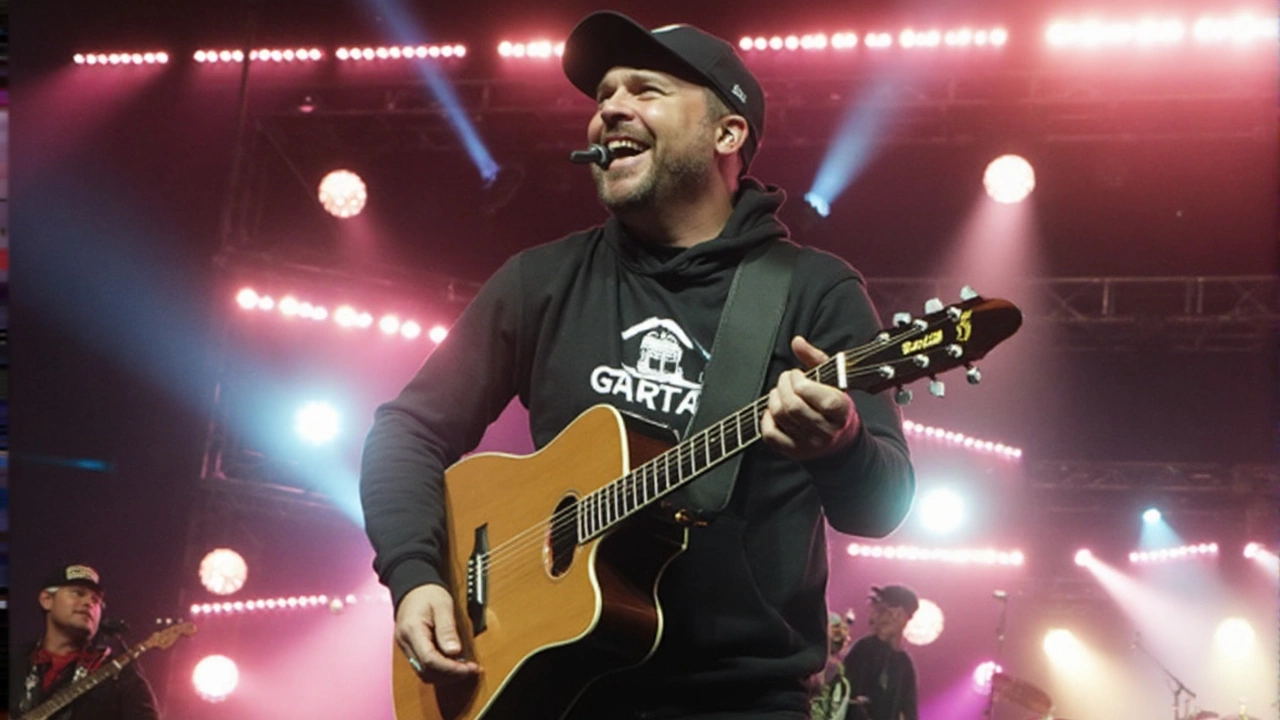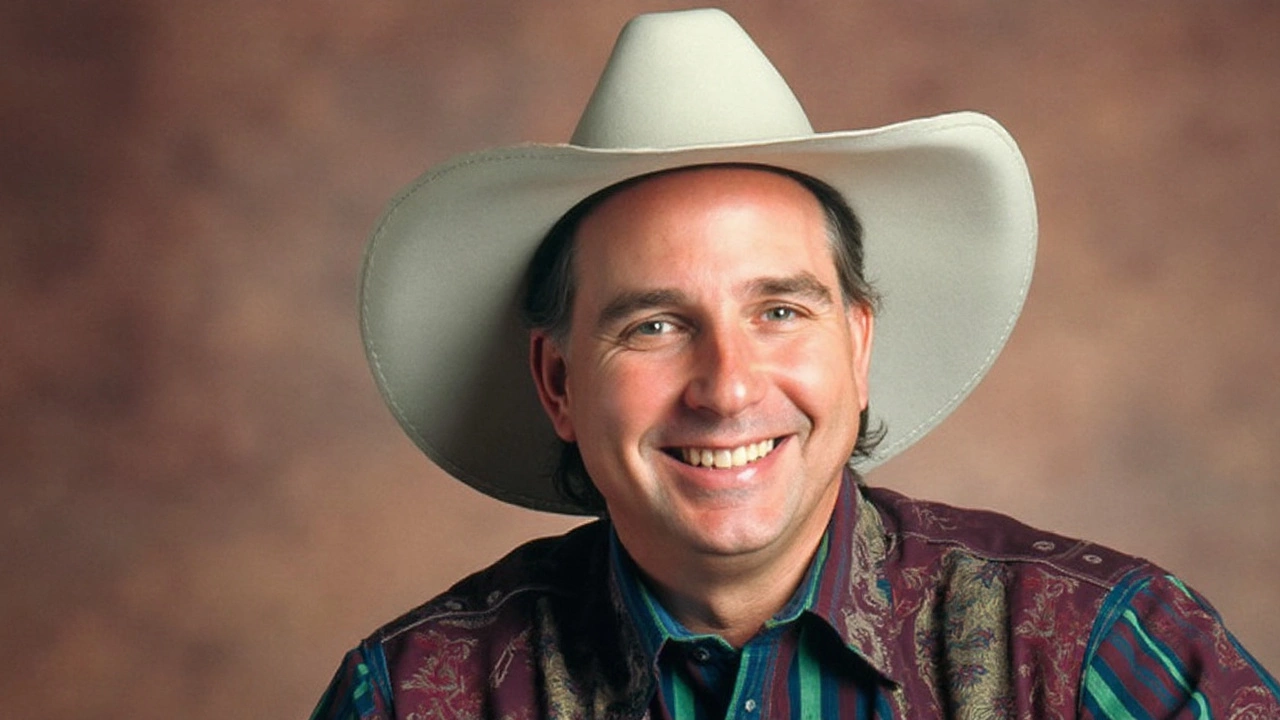August 21, 1989: the ballad that changed everything
Thirty-six years ago, a soft-lit ballad that some in Nashville didn’t think would work wound up defining an era. On Aug. 21, 1989, Garth Brooks released 'If Tomorrow Never Comes,' the second single from his debut album. Less than four months later, on Dec. 9, it climbed to No. 1 on Billboard’s Hot Country Singles chart—his first chart-topper, and the song he still calls his signature.
The rise didn’t come out of nowhere. Earlier that spring, Brooks had crashed country radio with 'Much Too Young (To Feel This Damn Old),' a roadhouse anthem that made the Top 10 and announced a brand-new voice from Oklahoma. The follow-up couldn’t have been more different: a quiet meditation on love, fear, and time. That contrast became his calling card—arena-sized showman one minute, heart-on-sleeve traditionalist the next.
Brooks co-wrote 'If Tomorrow Never Comes' with veteran songwriter Kent Blazy, a Nashville grinder who’d seen cuts but was still chasing a big break. They built the song around a late-night scene: a man watching the woman he loves sleep, asking himself the bluntest question—if the worst happened, would she really know how much she meant to him? When Brooks later heard their demo spin on the radio while driving his truck, he said it hit him so hard he teared up. That was the moment he realized they’d landed on something that mattered.
The song is often misread as a father-daughter message, probably because its core line—'If tomorrow never comes'—fits any kind of love that feels fragile. But on the record, it’s a romantic ballad, full stop. The verses—'Sometimes late at night, I lie awake and watch her sleeping'—frame a partner, not a child. Years later, as his family grew, Brooks sometimes dedicated the song to his kids onstage, which added to the confusion. The bones of the lyric, though, belong to a grown-up conversation between two adults.
Industry skepticism didn’t come from the song’s craft; it came from timing. In the late 1980s, radio was pivoting toward brisk, neo-traditional sounds. Ballads could be a harder sell. Brooks himself had been turned down in label meetings around Nashville in 1988, including by Capitol—only to get a second chance after a writer’s round at the Bluebird Cafe changed minds. That arc—early passes, a flash of belief, and a quick reversal—shadowed the song too. Several insiders thought it was too soft for a breakout. Radio proved otherwise.
Released in August, the single moved like a slow tide. It picked up adds, then loyalty, then momentum, finally unseating uptempo competition in December for a week at the top. The album behind it—simply titled Garth Brooks—was already gaining steam. By the time the dust settled, the LP had peaked at No. 2 on Billboard’s Top Country Albums chart and No. 13 on the Billboard 200, and it would ultimately be certified Diamond by the RIAA for U.S. sales topping 10 million.
Part of the song’s staying power is the way it sounds. Producer Allen Reynolds framed it with restraint: an intimate vocal, a warm acoustic bed, steel guitar that sighs rather than sobs, and just enough percussion to keep a heartbeat. No wasted notes. And no vocal gymnastics either—Brooks sings like he’s in the room with you, not on a stage 200 feet away. That unforced delivery made it a perfect fit for country radio in 1989 and for kitchen radios ever since.
The timing couldn’t have been better. In a single year, country music’s 'Class of ’89'—Brooks, Clint Black, Alan Jackson, and Travis Tritt—rebooted the format. Black brought finesse, Jackson brought honky-tonk purity, Tritt brought Southern rock swagger. Brooks stitched it all together and took it into arenas. 'If Tomorrow Never Comes' showed he could be as tender as anyone, and it cleared a path for his next bombs away: 'The Dance' went No. 1 in 1990 and 'Friends in Low Places' kicked off the next album cycle with a cultural earthquake.
Recognition followed. At the 1991 American Music Awards, 'If Tomorrow Never Comes' was named Favorite Country Single. Around the same time, country radio programmers began to treat Brooks not as a promising newcomer but as a force you had to schedule around. That perception mattered: it meant future singles would be met with curiosity instead of caution.
The Blazy-Brooks partnership didn’t end there. They kept finding ways to bend the lane lines. They wrote the whiplash-fast 'Ain’t Goin’ Down (’Til the Sun Comes Up),' which raced to No. 1 in 1993, then toggled back to candlelight with 'Somewhere Other Than the Night.' They even had fun with George Jones on 'Beer Run (B Double E Double Are You In?),' a novelty with a serious hook. If you wanted proof that collaboration chemistry exists, their run of singles supplied it.
Cover versions carried 'If Tomorrow Never Comes' far beyond U.S. country radio. In 2002, Irish pop singer Ronan Keating turned it into a global hit, topping the U.K. chart and reaching No. 1 in several other countries. For a generation outside the U.S., Keating’s version introduced the lyric—and sent many listeners back to Brooks’s original. The song has since become a karaoke staple, a wedding slow-dance choice, and the rare country ballad that turns up at memorial services and high-school gym dances alike.
Why does it land so hard? The song asks a question most of us avoid: if the unthinkable happened tonight, have I actually shown the people I love what they mean to me? The second verse nails it—he’s lost people before and learned that love has to be demonstrated, not assumed. Country music has always honored plain talk, and this is plain talk with high stakes.
You can also hear the craft under the hood. Verse one sets the scene in a single breath; the pre-chorus tightens the screws with rising chords; the chorus delivers the thesis in a line that sticks. The melody stays in a narrow range so the words can do their work. And then comes the turn: he promises to start doing the little things to let her know—an action step, not just a confession. It’s a masterclass in how to write a chorus people remember without shouting.
For Brooks, the single rewired his trajectory. Before August 1989, he was a guy with one Top 10 and a lot of hustle. After December, he was a ballad singer who could sell out a theater and a showman who could cry on the radio and not lose the room. That mix set up No Fences in 1990, which lived at No. 1 on the country albums chart for 23 weeks and spun off anthems that spilled past the format.
Decades on, 'If Tomorrow Never Comes' is still a given in his setlists. He often dims the lights, backs away from the band, and lets a stadium fall quiet enough to hear the acoustic strings ring. You can’t fake that many people holding their breath at once. The song earns it every time because the question at its center never ages.

The bigger story behind the near-miss
That early Nashville pushback—on Brooks, on a ballad like this—wasn’t malicious. It was muscle memory. Radio cycles turn, labels chase speed, and slower songs have to prove themselves. In 1988, Brooks walked into offices and heard 'not yet' more than once. Then a Bluebird Cafe set flipped a key decision-maker, and the door opened. A year later, the kid everyone passed on was carrying a No. 1 ballad—and laying the foundation for one of the most dominant careers the genre has ever seen.
If you want to map the moment he stopped being just a talented newcomer and started becoming a movement, circle Aug. 21, 1989. A simple, vulnerable song crossed the line from personal to universal. Country radio moved with it. And a career that would break touring, sales, and awards records found its heartbeat in three and a half minutes of quiet resolve.
